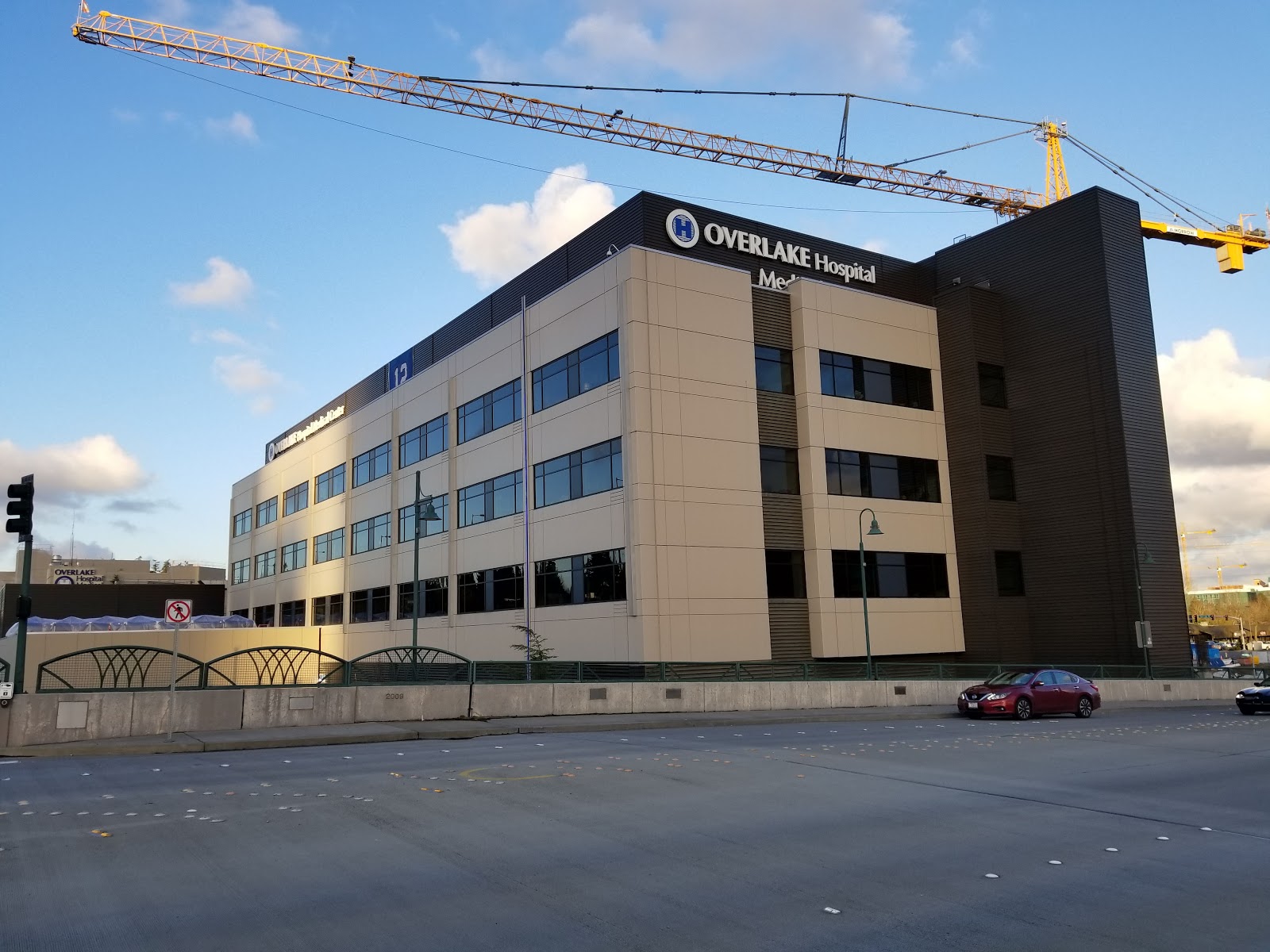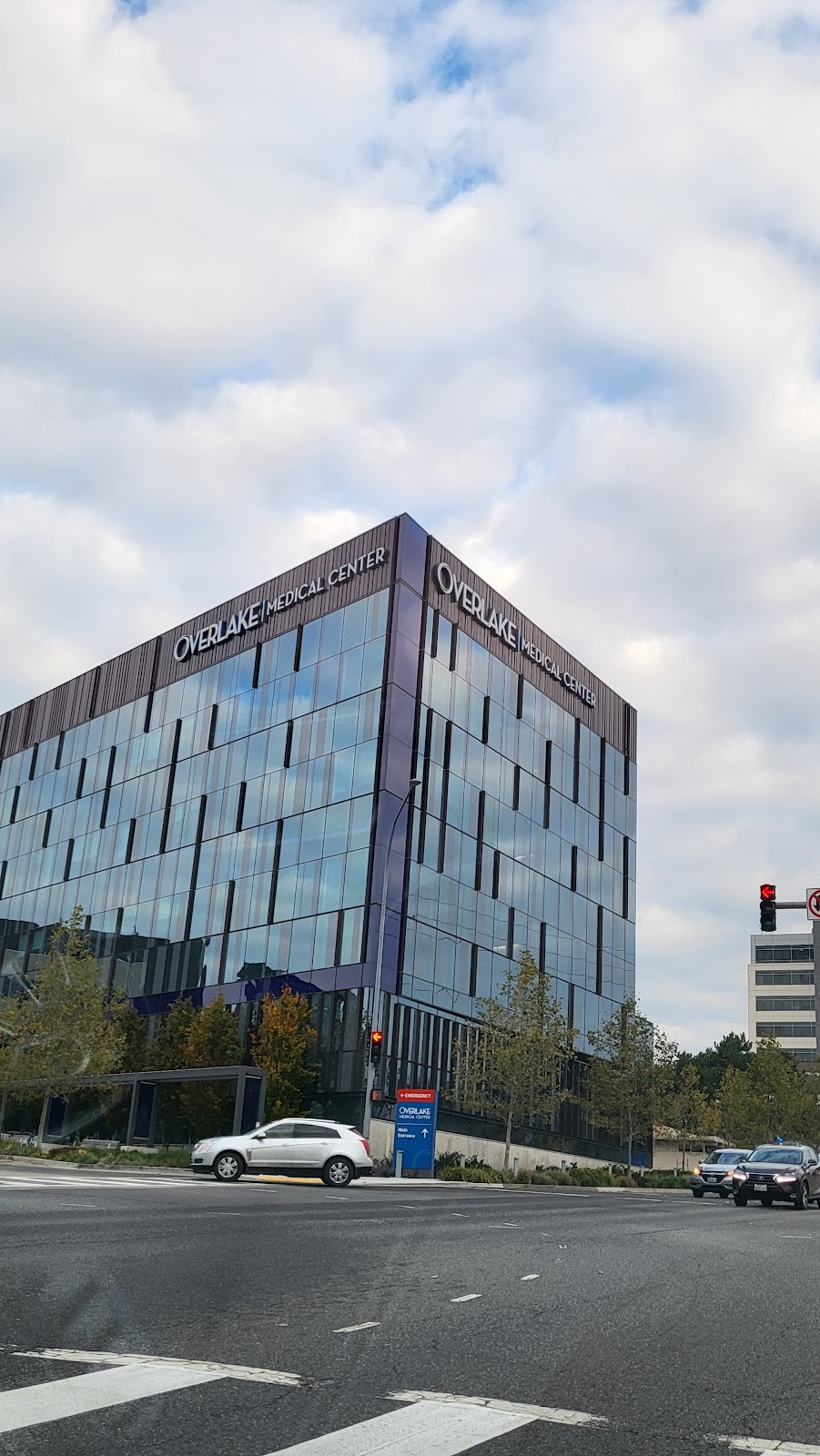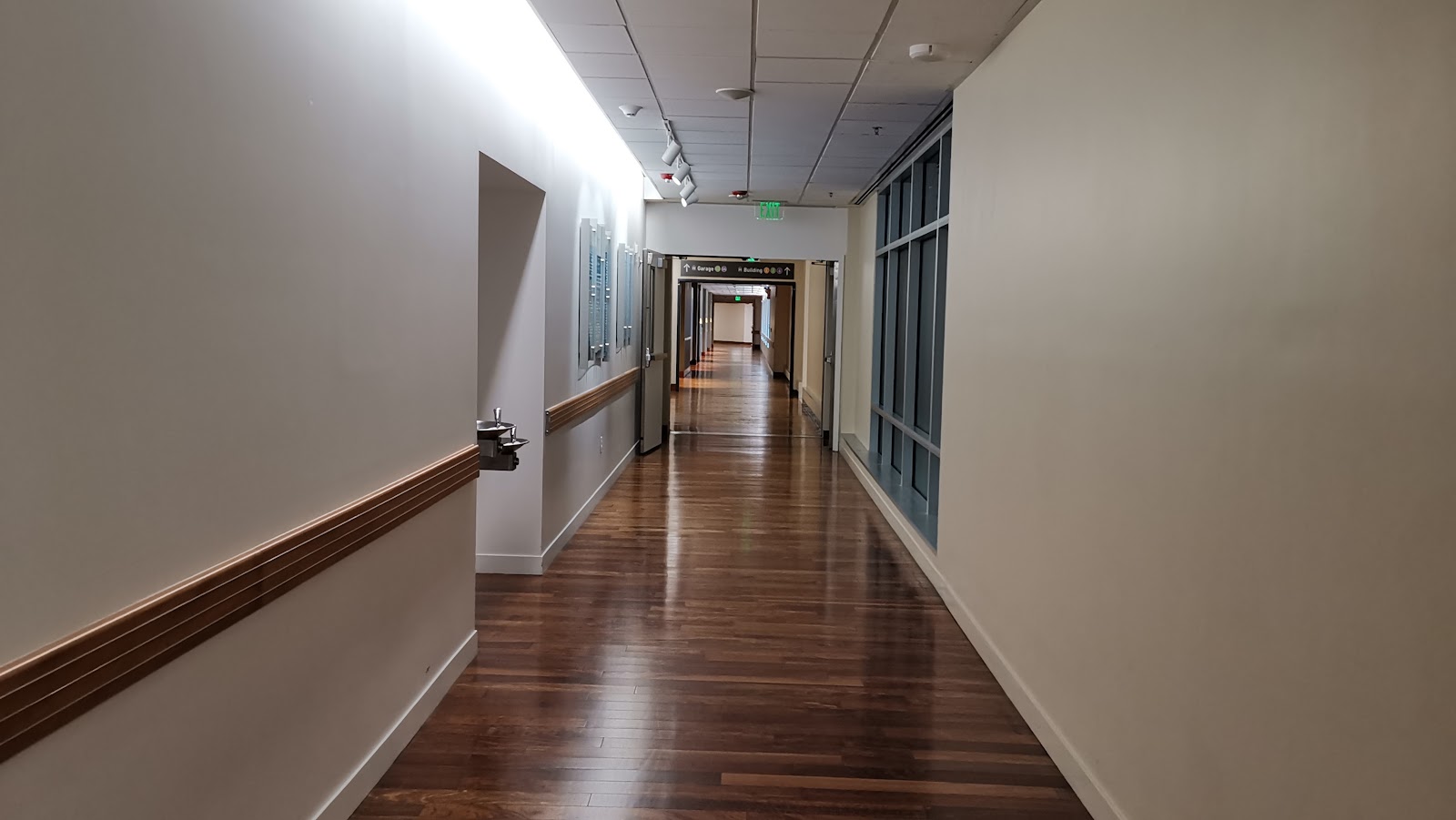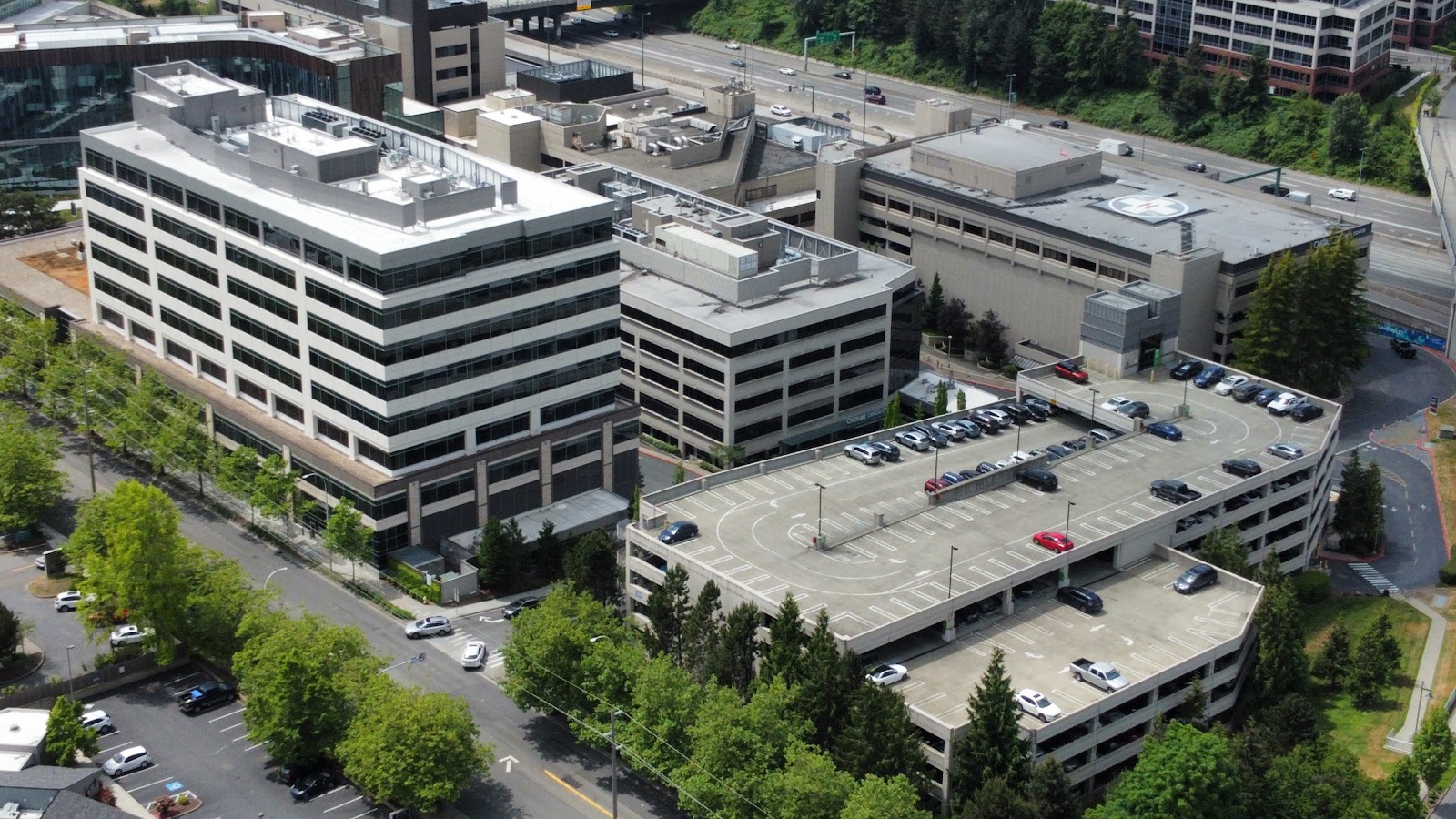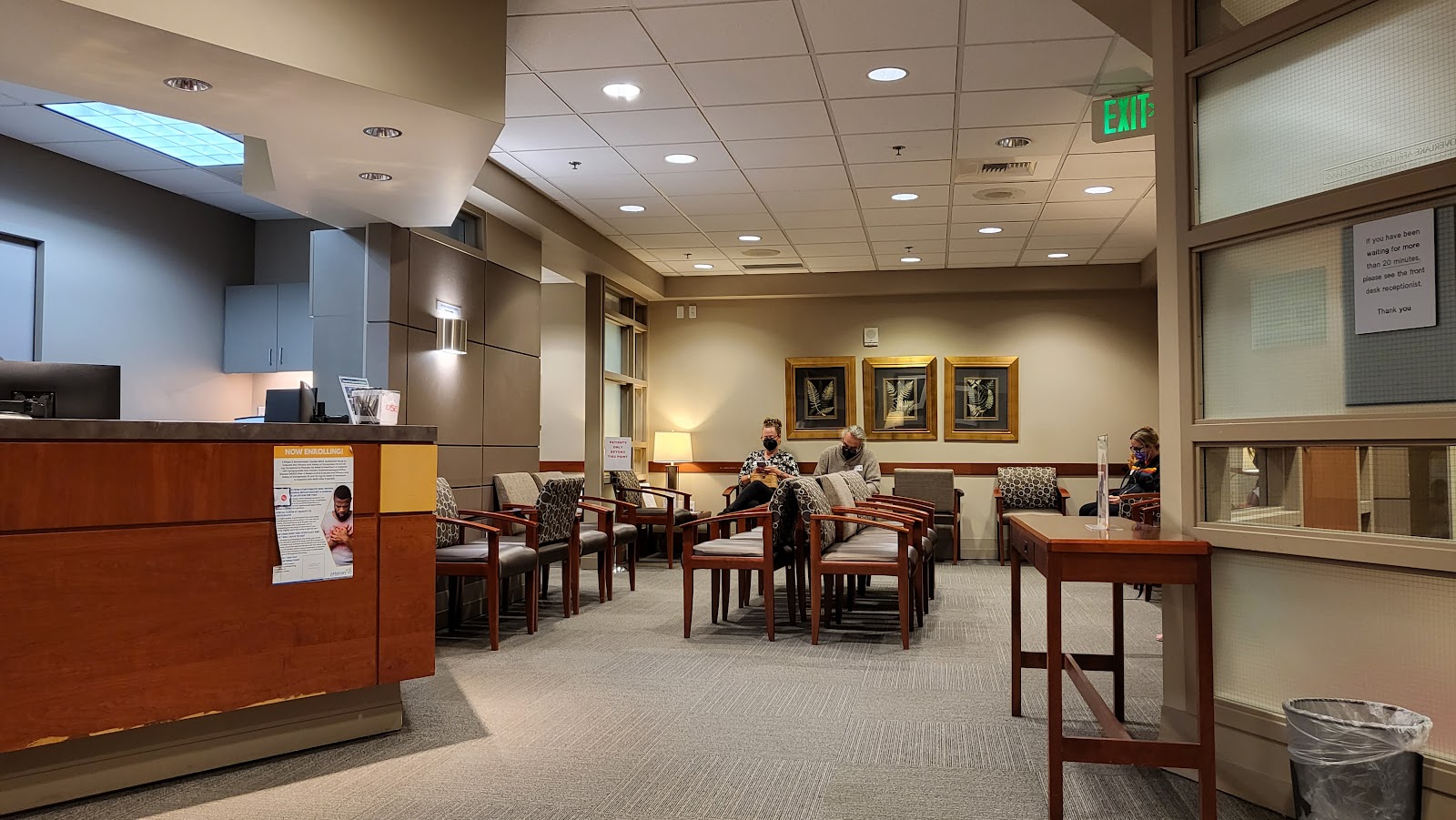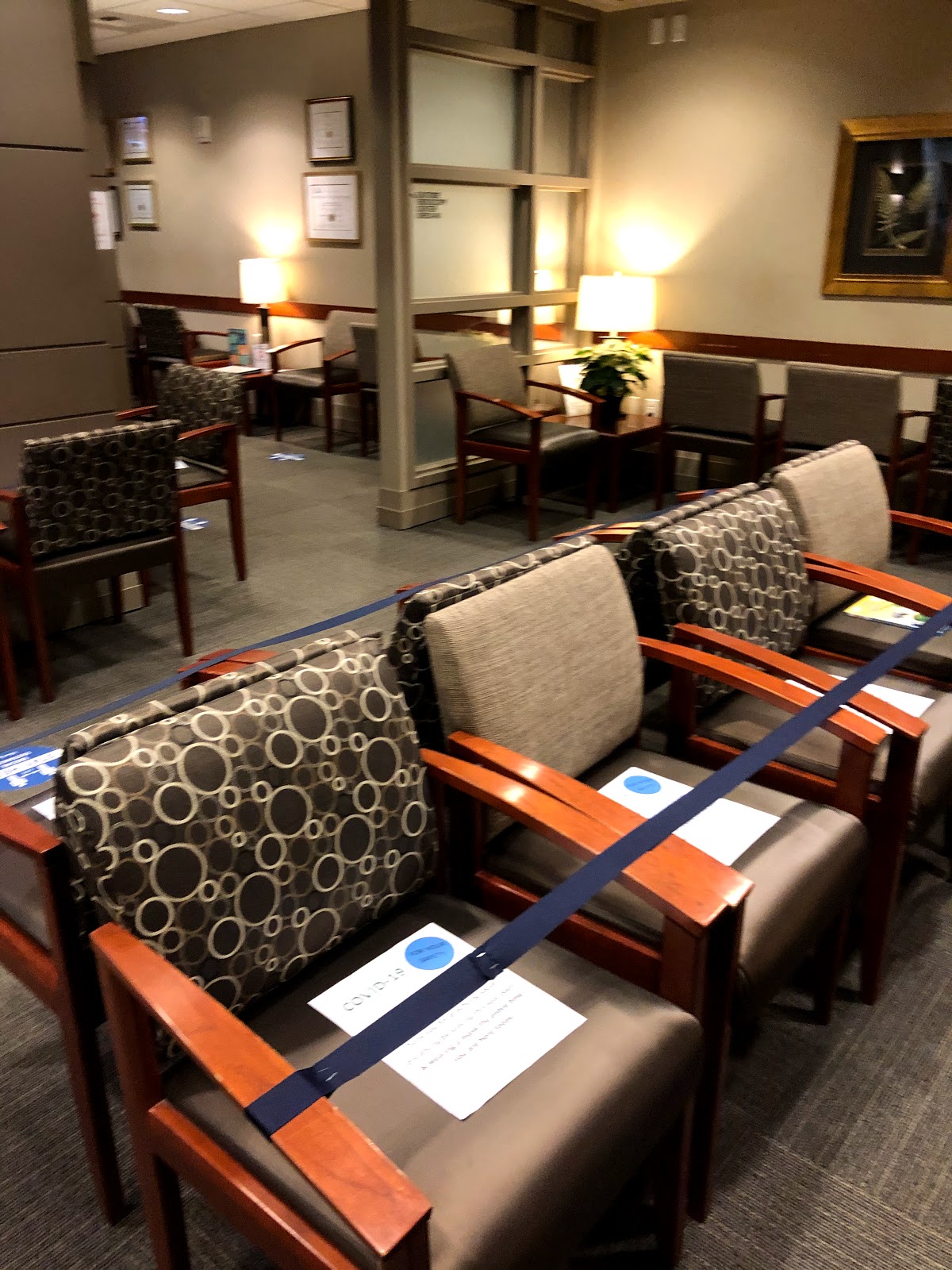Overlake Hospital Medical Center - Behavioral Medicine
Overview
The Puget Sound region's Overlake Hospital Medical Center - Behavioral Medicine provides a wide variety of treatment programs to help people with addiction and mental health concerns. With an emphasis on crisis stabilization, the center's inpatient program offers intensive treatment along with skills workshops, group and individual therapy, and educational programs. Clients with dual diagnoses are welcome to enroll in this program, which guarantees integrated treatment for people dealing with both mental health and drug use difficulties.
Overlake's partial hospitalization program (PHP) is intended for those who don't need round-the-clock care but do need organized assistance. This program combines medication management, exercise therapy, group therapy, individual treatment, and skill-building programs. Individualized treatment programs catered to their particular requirements are provided to clients in the PHP, who usually attend therapy for around 30 hours per week.
Overlake's outpatient program offers a wide variety of treatments, such as medication management, psychiatric care, family therapy, couples counseling, individual therapy, and group therapy, for those who need a more flexible choice. For those who can control their symptoms and still live at home or take care of their everyday obligations, this program is perfect.
A broad spectrum of people may get treatment at Overlake Hospital Medical Center since it accepts the majority of major insurance plans, such as Amerigroup, United Healthcare, and Blue Cross Blue Shield. Before beginning treatment, customers should confirm their benefits since insurance coverage may differ for out-of-network doctors.
With more than 60 years of history, Overlake Medical Center & Clinics has made a name for itself as one of the Puget Sound region's top healthcare providers. The nonprofit organization offers cutting-edge medical services to a diverse and changing population via its 349-bed hospital and expanding network of general, urgent, and specialty care clinics. Through an affiliation deal with MultiCare Health System in 2024, Overlake expanded its scope, becoming the flagship of MultiCare's new North Puget Sound area and improving its capacity to provide King and Snohomish counties with comprehensive healthcare services.
Overlake has more than 3,700 employees, including more than 1,300 connected medical professionals, and is run by a volunteer board of trustees. With more than 300 doctors and advanced practice specialists on staff, patients are certain to get the best treatment possible in a range of disciplines. Overlake’s dedication to maintaining the highest standards in medical care has earned it regional and national recognition, with patients and families choosing Overlake for its excellence in healthcare and commitment to quality.
With its full continuum of mental health services, from inpatient care to outpatient therapy, and its longstanding reputation for medical excellence, Overlake Hospital Medical Center remains a trusted provider for individuals seeking mental health and addiction treatment in the Pacific Northwest.
Overlake Hospital Medical Center - Behavioral Medicine at a Glance
Payment Options
- Cash or self-payment
- Medicaid
- Medicare
- Private health insurance
- Federal military insurance (e.g., TRICARE)
Assessments
- Screening for tobacco use
- Comprehensive mental health assessment
- Comprehensive substance use assessment
Age Groups
- Young adults
- Adults
- Seniors
Ancillary Services
- Suicide prevention services
Treatment At Overlake Hospital Medical Center - Behavioral Medicine

Conditions Treated
Alcoholism:
Alcohol addiction is when a person becomes physically and mentally dependent on alcohol, leading to mood swings, impulsive actions, intense cravings, and withdrawal symptoms. Treatment includes supervised detox, therapy, and support groups. It's important to note that rehabilitation doesn't "cure" alcoholism, but it helps individuals better manage their addiction, regain their ability to function in daily life, and improve their overall well-being.
Mental health treatment:
Mental health treatment involves a range of therapeutic approaches, provided by licensed professionals, to address mental health challenges. It includes psychotherapy, medication, and holistic practices to help individuals manage conditions, improve coping skills, and enhance overall well-being. The goal is to empower individuals to lead fulfilling lives and reduce the stigma surrounding mental health.
Substance use treatment:
Substance use rehabilitation is a structured program aimed at assisting individuals in overcoming their dependencies on drugs or alcohol. Through a combination of medical detoxification, counseling, and various therapeutic approaches, these programs strive to address the physical and psychological aspects of addiction. The goal is to equip individuals with the knowledge, skills, and support necessary to attain lasting sobriety, while also working to identify and address the underlying issues contributing to substance misuse. By fostering a supportive environment, substance use rehabilitation centers provide a pathway towards a healthier, substance-free life.
Co-occurring Disorders:
Dual-diagnosis rehabilitation centers focus on treating individuals with simultaneous mental health and substance use disorders. The intertwined nature of addiction and mental health issues can intensify each other's symptoms, complicating recovery. These centers provide a holistic treatment strategy addressing both conditions together, often encompassing thorough evaluations, a blend of therapeutic methods, family counseling, and post-treatment care.
Opioid Treatement:
Opioid addiction rehabilitation is a specialized treatment process tailored to address the unique challenges and complexities of opioid dependence, including drugs like heroin and prescriptions like oxycodone. The process typically begins with a medical detox to ease withdrawal symptoms, followed by therapeutic interventions to address the root causes of addiction. This holistic approach aims to provide individuals with the skills and support needed for long-term recovery from opioid use.

Levels Of Care
Hospital inpatient/24-hour hospital inpatient:
The 24-Hour Hospital Inpatient for Addiction Treatment program provides continuous medical care and support for those battling substance use and addiction. Located within a hospital setting, this focused inpatient program caters to both immediate and ongoing patient needs, guaranteeing their safety, stability, and thorough rehabilitation.
Hospital inpatient treatment:
Residential treatment programs provide housing, meals, and substance abuse treatment, offering patients an environment dedicated entirely to their recovery, distinct from their everyday life. While some rehab facilities concentrate on short-term stays lasting a few days to a couple of weeks, others emphasize long-term care spanning several weeks to months. Many centers offer both, customizing the treatment based on each patient's unique needs.
Hospital inpatient detoxification:
Hospital Inpatient Detoxification offers a specialized medical intervention tailored for individuals navigating the challenging process of withdrawal from addictive substances, including alcohol and drugs. Central to its design is the provision of 24/7 medical oversight by a team of interdisciplinary professionals to address any emergent complications and ensure patient safety during the critical detox phase.
Detoxification:
Detoxification, often called detox, is like a reset button for the body after someone has been using drugs or alcohol. Its main job is to help people who want to quit these substances by easing the discomfort they might feel when they stop. Think of it as a way to clean out the harmful stuff in the body when someone has been using drugs or alcohol too much. Detoxification aims to make the process of quitting safer and less painful for the person.

Treatment Modalities
Group counseling:
Group counseling provides a supportive environment where individuals share personal experiences and insights, under the guidance of a professional counselor. It facilitates self-awareness, fosters interpersonal learning, and helps members work through personal and relational challenges. Through shared dialogue and reflection, individuals learn coping strategies, gain emotional support, and experience personal growth within a communal setting.
Cognitive behavioral therapy:
Cognitive Behavioral Therapy (CBT) is a form of psychotherapy that emphasizes the critical role of thinking in how we feel and what we do. It aims to identify and challenge distorted or negative thought patterns and behaviors, teaching individuals to replace them with more constructive and rational beliefs. CBT is evidence-based and has been shown to be effective in treating a variety of psychological disorders, including depression, anxiety, and phobias, among others.
Dialectical behavior therapy:
Dialectical Behavior Therapy (DBT) is a cognitive-behavioral approach specifically designed to help individuals regulate emotions, enhance interpersonal effectiveness, develop distress tolerance, and increase mindfulness. In addiction treatment, DBT equips individuals with practical skills to manage triggers, cope with stressors, and build a life worth living without resorting to substance use. By addressing both the emotional and behavioral challenges of addiction, DBT fosters personal growth and long-term recovery.
Activity therapy:
Activity Therapy encompasses a range of structured activities aimed at promoting physical, emotional, and mental healing and well-being among individuals recovering from substance abuse, physical injuries, or mental health issues. Utilizing creative expression, outdoor activities, and skill-building exercises, this therapeutic approach helps individuals rediscover their interests, develop coping skills, enhance self-esteem, and improve interpersonal relationships. By engaging in meaningful activities in a supportive environment, individuals are empowered to overcome challenges and progress towards a holistic and lasting recovery.
Smoking/vaping/tobacco cessation counseling:
Vaping Cessation Counseling is a specialized form of support designed to help individuals overcome their dependence on electronic cigarettes or vaping products. Through evidence-based strategies, personalized advice, and emotional support, counselors guide individuals towards a nicotine-free life, emphasizing the long-term health benefits of cessation.
Electroconvulsive therapy:
Electroconvulsive therapy (ECT) is a medical intervention primarily employed for patients with severe major depression or treatment-resistant bipolar disorder. During ECT, a brief electrical stimulation is applied to the brain while the patient is under anesthesia. This treatment is administered by a specialized medical team, typically consisting of a psychiatrist, an anesthesiologist, and a nurse or physician assistant.
Experiential Therapy:
Experiential Therapy is a therapeutic approach that encourages individuals to identify and address hidden or subconscious issues through activities, actions, and direct experiences. Unlike traditional talk therapy, this method involves engaging in activities, role-playing, and other interactive techniques to garner emotional expression and self-discovery. By placing individuals in relevant situations, therapists can observe their behaviors and emotions in real-time, allowing for immediate feedback and insight. Through this interactive process, individuals can better understand their feelings and behaviors, develop coping mechanisms, and work towards resolving personal conflicts.
Individual counseling:
In individual therapy, a person engages in a one-on-one session with a qualified therapist or counselor. This therapeutic approach is crucial in successful substance abuse treatment because it delves into the underlying causes of addiction, addressing issues the individual may encounter in their familial, social, and professional or academic environments.
Nicotine replacement:
Nicotine Replacement Therapy (NRT) provides nicotine to the system without the need for smoking. It utilizes products that deliver minimal doses of nicotine, assisting individuals in their quest to quit smoking. The therapy aims to reduce nicotine cravings and mitigate withdrawal symptoms.
Ancillary Services
Languages
- Sign language services for the deaf and hard of hearing
Additional Services
- Pharmacotherapies administered during treatment
- TB screening
Contact Information
DISCLAIMER: The facility name, logo and brand are the property and registered trademarks of Overlake Hospital Medical Center - Behavioral Medicine, and are being used for identification and informational purposes only. Use of these names, logos and brands shall not imply endorsement. BetterAddictionCare.com is not affiliated with or sponsored by Overlake Hospital Medical Center - Behavioral Medicine.
